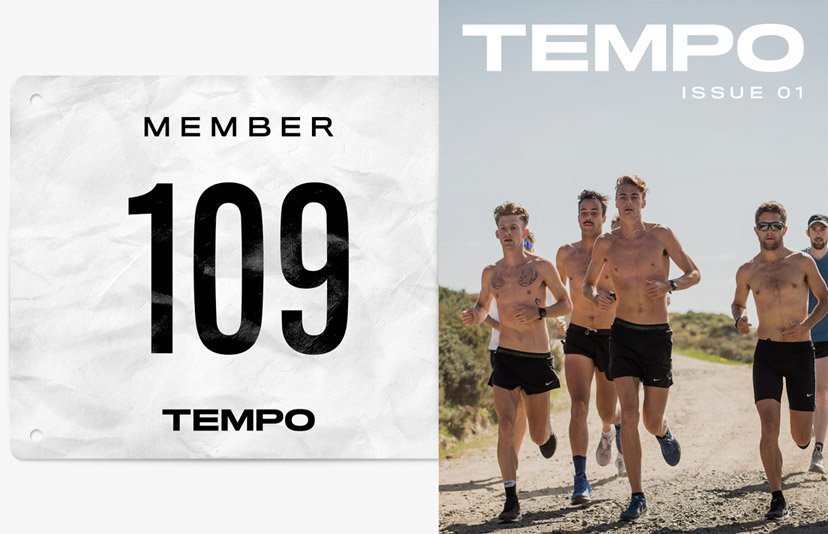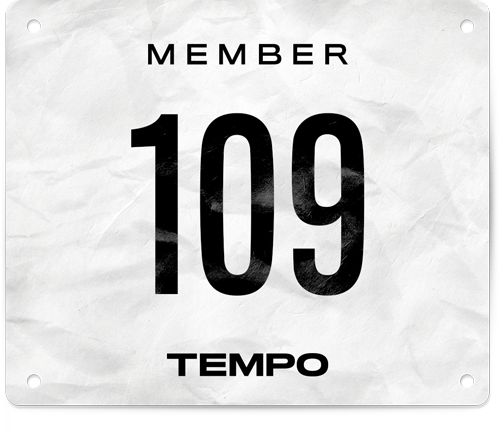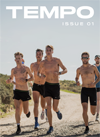Culture
NBRO Running: From Copenhagen to the world
How 3 friends from Denmark continue to influence running culture
The urban running world changed in 2004 when Mike Saes and Cedric Hernandez founded the Bridgerunners in New York City.
Until then, organised running groups were decidedly uncool. Think short shorts, bunched up long socks, and conversations that didn’t stray far from split times and anti-chaffing cream.
Today, there are literally hundreds of urban run crews around the world, providing a fresh take on a sport that has been crying out for some extra personality.
As well as catering for a wider range of abilities than a traditional running club, they incorporate a strong social vibe with an emphasis on supporting each other. These elements have become key to attracting young, urban runners.
There can’t be a conversation about urban running without mentioning NBRO Running, based in Copenhagen, Denmark. NBRO, short for the Norrebro neighbourhood where the group meets, is one of the biggest and longest standing run crews in the world.
We sat down with one of NBRO’s co-founders, Anders Rømer, to learn more about the popularity of the crew.
“I think we are actually the fourth run crew. This urban movement started with Bridgerunners in New York City, and then Run Dem Crew in London. There was also a team in Berlin but they are not around anymore, and then NBRO.
We’ve been there since pretty much the beginning as one of the first crews in Europe in 2010”
While there’s no doubt that urban running crews have exploded in popularity over the last half a decade, the reasons they’ve been so successful vary from city to city. For NBRO, it’s about providing an environment that works for young, busy, Danes.
“Urban running crews are so popular because the format is well built for young people. A traditional club where you have to sign up for a membership, pay every month, come to structured practices a few times a week and then race on sat morning, this doesn’t fit with our way of living".
"NBRO has no obligations at all. We offer 10 trainings per week. Show up if you want to, or stay home if you want to. No one is going to tell you how fast or how far you have to run every day"
"We just create a framework for people to get to know each other and get some exercise”.
Rømer is well credentialed to lead a crew like NBRO. He recently returned from the Frankfurt Marathon (his 21st marathon) where he set a new PB of 2:35. Not that NBRO is only for fast runners, or even purely about running.
“We’re very conscious of the impact we have on the running community. We try as much as we can to keep living out these positive vibrations and a positive attitude. We want people to run and socialise and grab a beer afterwards”.
“The guys and girls in NBRO come from all different parts of society. If we stumbled upon each other in a bar and didn’t know each other we wouldn’t start a conversation but running has brought us together.
There’s a unique bond created when you’re in a running group, it allows you to start a connection on a new level”.
Oscar Wilde once said “imitation is the sincerest form of flattery that mediocrity can pay to greatness”, and with countless NBRO-inspired run crews popping up around the world, Rømer’s perspective offers some insight as to why NBRO has been so successful.
“It’s a good thing that these new crews are popping up, I feel really good about it. In the end we’re getting more people being active and out on the streets running”
The increased popularity of run crews has seen big brands enter the space and create their own crews. These brands are not even necessarily sporting brands, with one beer brand in Denmark even starting an urban run crew.
“In Denmark there are a lot of brands starting crews and enticing certain ‘interesting’ people to join them. They’ve attracted some of our core NBRO members this way.
I can’t tell our NBRO runners not to say yes to these offers; that would be the start of a bad vibe, and no-one needs that".
"You don’t join NBRO for a free t-shirt or a free energy bar after practice, you join because you like running and socialising, and that’s what we do"
"So if you are just coming for a t-shirt, then maybe you are best to join one of these other clubs”.
Calling NBRO one of the biggest crews in the world is accurate, but not necessarily based in fact. Without a formal membership structure, no one knows exactly how many runners each crew has, but it has never been about amassing numbers.
For NBRO, there’s a much bigger focus on helping runners become better.
“Some of these run crews are doing head counts at the start of their run! They stand up and count every person before the run starts because they have to report it back to their office. I don’t know how I would feel being counted like that.
One of the things we’re good at is attracting the talent that would never be attracted to a traditional running club.
We’ve had a lot of guys coming in that maybe started a bit overweight, partying a lot, then starting to run with us.
They do their first marathon in 3:30 and then eventually they dare to join the fast group and run with them once a week. Slowly year after year they realise it’s not too hard.
We’ve now got several guys that are below 2:40, and one that is a 2:29.
He would never have discovered his talent in a real running club. He drinks too much to ever go there! In NBRO he has the framework to really discover his talent, I'm very proud of that”.
Many crews struggle with the balance between catering for fast runners and scaring away the newcomers. As a result, most are known for either being great party crews, or fast runners.
At NBRO, respect is earned through effort on the track, not race times.
“We really try to point out anyone that has done well by their own scale. As long as you improve and reach your goals, that’s what is important to us”.
With 10 training sessions per week, a huge social media following, and a spotlight on crew running in Europe, one would think the NBRO founders would be bullish on the future. Rømer though takes a long term perspective on it, no doubt the type of thinking that got NBRO to where it stands today.
“It’s going to be a challenge for us to stay alive. We really need to reinvent the way we keep it fun for people to join NBRO”
It’s a big statement for someone that knows modern running culture better than most, having raced the six major marathons and partied at many more.
“We are facing a lot of challenges right now. Urban running has been trending for maybe 4-5 years, and the obvious thought is that something else is coming. Things like obstacle course racing, cyclocross, and other sports are attracting runners”.
One thing is for sure; whatever the future holds for NBRO, the impact it has on runners is unquestionable.
Rømer credits group training as the reason for his continued progress.
“My running has progressed on a level beyond understanding for me. One thing I’ve learned is that having teammates on your level makes the hard training sessions easier and more fun.
Before NBRO I trained on my own for a sub-three marathon, but since I started running with NBRO my running has improved so much.
As a group now we can easily see when there’s new talent coming into the group and it’s inspiring, and it’s so much fun to be that talent as well”.
It’s not at all surprising that Rømer continues to lower his marathon time. He racks up around 5,000km every year, constantly logging miles even throughout a cold Copenhagen winter. As the miles rack up, motivation still comes from the same place; chasing PB’s.
"There’s always a funny dynamic in achieving a goal. Frankfurt Marathon was a good race for me. I’ve had a hard time improving my marathon time recently, but I had a perfect race. When I crossed the line I immediately thought ‘This is the time I’ve dreamed about, and I’ve achieved my goal’.
Then 1 minute later I start thinking ‘but it was quite windy, maybe I could go faster if it wasn’t windy’. I also missed most of my nutrition, so I think about the difference that would have made for me”.
“For the rest of my life I’ll always be a 2:35 guy now. That has a big meaning identity wise for me. Whatever happens in the future, I can take this time to my grave".
"Runners know that a 2:35 doesn’t come easy, it takes a lot of effort, a ton of training and dedication and that’s what I’m proud of. It has taken a shit load of hard training to get here”
As someone directly and indirectly responsible for inspiring hundreds of people in Copenhagen and around the world to run more and start their own running crews, Anders Rømer has a lot to be proud of.


